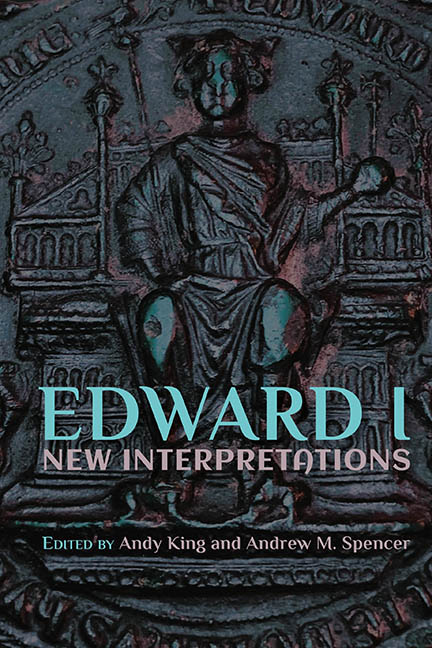Book contents
- Frontmatter
- Contents
- List of Contributors
- Acknowledgments
- Abbreviations
- Genealogy of Edward I
- Introduction
- 1 The Lord Edward and the Administration of Justice across his Apanage, 1254–72
- 2 A Tale of Two Ministers: Robert Burnell, Walter Langton and the Government of Edward I
- 3 Law and Order in the Reign of Edward I: Some New Thoughts
- 4 Magnates, Ritual and Commensality at Royal Assemblies: Bogo de Clare and Edward I’s Easter Parliament, 1285
- 5 Royal Daughters and Diplomacy at the Court of Edward I
- 6 Hearts and Bodies: Edward I and the Scottish Magnates, 1296–1307
- 7 Edward I and the Blessed Virgin Mary
- 8 Letters and Political Discourse under Edward I
- 9 Crisis? What Crisis? 1297 and the Civil War that Never Was
- Index
8 - Letters and Political Discourse under Edward I
Published online by Cambridge University Press: 21 March 2020
- Frontmatter
- Contents
- List of Contributors
- Acknowledgments
- Abbreviations
- Genealogy of Edward I
- Introduction
- 1 The Lord Edward and the Administration of Justice across his Apanage, 1254–72
- 2 A Tale of Two Ministers: Robert Burnell, Walter Langton and the Government of Edward I
- 3 Law and Order in the Reign of Edward I: Some New Thoughts
- 4 Magnates, Ritual and Commensality at Royal Assemblies: Bogo de Clare and Edward I’s Easter Parliament, 1285
- 5 Royal Daughters and Diplomacy at the Court of Edward I
- 6 Hearts and Bodies: Edward I and the Scottish Magnates, 1296–1307
- 7 Edward I and the Blessed Virgin Mary
- 8 Letters and Political Discourse under Edward I
- 9 Crisis? What Crisis? 1297 and the Civil War that Never Was
- Index
Summary
During an extended absence from the realm in 1286–9, Edward I managed the governance of his English kingdom and the representation of his royal authority there by instructing his regent through letters. The discourse of royal correspondence in these years amounts to a substantial body of evidence for Edward's conceptualisation of his kingship, one that reveals his priorities and concerns in the interstitial moments between the famous major inquiries and statutes of the reign. The image that emerges from a rhetorical analysis of royal letters addressed to Edmund, earl of Cornwall, the king's cousin and lieutenant in England, is a complex one. It confirms Edward's well-known concern for upholding royal authority, prerogatives and franchises, but reveals that the king recognised the necessity of tempering this within the limiting conceptual bounds of due process, the duty to do justice, equity at law and counsel, both as a mechanism of ensuring the former and as a right of the nobility in relation to their lord. It also affirms that despite his reputation as a relatively parsimonious monarch, Edward was well schooled in the discourses of patronage and favour, yet similarly exercised them within the above conceptual restraints.
Generations of scholars have emphasised an aggressive and even cynical side to Edward's political manoeuvres, and cast his relationships with his nobility in terms of ‘confrontation and domination’. Even in his ground-breaking study on the lessons Edward drew from the period of reform and rebellion during the reign of Henry III, John Maddicott concluded by implying that Edward's preference for ‘the arts of political management’ over ‘masterfulness’ was a feature of the 1270s rather than his ‘later attitude’. Recently, studies such as those of Andrew M. Spencer and Caroline Burt have argued for a more balanced and politically astute Edward, more closely involved in the design of the policies of his reign than previous scholars have suggested. Spencer, for instance, has shown how Edward managed the delicate relationship with his English nobility largely successfully, irrespective of moments of conflict such as the defiance of Roger Bigod over Gascony in 1297.
- Type
- Chapter
- Information
- Edward I: New Interpretations , pp. 143 - 162Publisher: Boydell & BrewerPrint publication year: 2020

